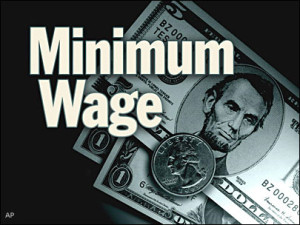Household Employment Blog
Understanding What it Means to be a Household Employer
Minimum Wage Increases In Several Areas
Connecticut, Minnesota, West Virginia, Delaware, Maryland, and Washington D.C. have recently increased their minimum wage requirements. All of these increases will take place gradually over a certain number of years. Household employers who pay their employees minimum...
Beef Up Interview Questions For Nannies to Get Results
Families and Nanny Agencies - You may be asking the right interview questions but in the wrong way. This article teaches you how to alter common interview questions for nannies to get truthful answers from your applicants during the interview. Have you ever asked...
Preparing for Nanny’s First Day
As an employer, you need to prepare for your nanny’s first day on the job. He or she needs to become acquainted with the household, its operations, its environment—even the household’s culture. Be ready to spend some time with your new nanny during his or her first...
Home Safety for Kids and Nannies
Home safety is an important concern year-round, but with summer not too far away, more children will be running around both inside and outside the home. One way to make things easier on your nanny or other caregiver is to make your home – your nanny’s workplace - a...
NYC Paid Sick Leave – Notice of Employee Rights
Under the New York City paid sick leave law, in effect as of April 1, 2014, domestic employers are required to give eligible employees a Notice of Employee Rights created by the Department of Consumer Affairs. Existing employees that have been employed before April 1,...
Paid Sick Leave for NYC Domestic Workers
New York City has passed its first paid sick leave law that went into effect on April 1st 2014. The law requires domestic employers to provide employees who work more than 80 hours in a calendar year with two paid days off to care for themselves or for close family...
7 Nanny Transition Tips
Ending a job is never easy. Whether it is your decision, your employer’s, or a mutual agreement to part ways, there are many things to take into consideration during this time of transition. To help you through this challenging and unsure time, we have developed...
Changes Coming for Domestic Workers in Massachusetts?
There may be several changes coming for Massachusetts domestic workers such as nannies, senior care workers, and housekeepers. Yesterday the House voted to raise the state's minimum wage from $8 to $10.50 per hour over the next two years. The bill would also freeze...
Terminating Your Nanny
All good things, and possibly some bad things, must come to an end. One of the most difficult aspects of being an employer is to face the end of an employee relationship, whether terminating your nanny or other household employees or dealing with a resignation. The...
Sign up for our Newsletter
Household Employer Digest











 Get your free:
Get your free: